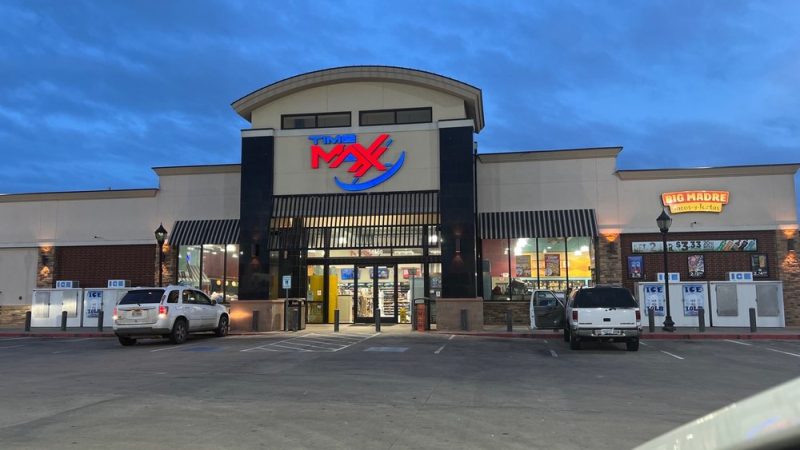The key components of DevSecOps include continuous integration/continuous deployment (CI/CD) security, automated security testing such as Static Application Security Testing (SAST) and Dynamic Application Security Testing (DAST), secure code reviews, Infrastructure as Code (IaC) security practices, and compliance automation. CI/CD security ensures that security checks are integrated into the automated build and deployment pipelines, preventing insecure code from progressing to production. Automated testing tools like SAST and DAST scan code for vulnerabilities, while secure code reviews involve manual inspections to identify and fix security issues. IaC security focuses on securing infrastructure deployment scripts, ensuring that cloud resources are configured securely from the outset. Compliance automation helps organizations adhere to regulatory requirements throughout the development process.
Software with DevSecOps Services
Overview
Softnix DevSecOps Advancing Development with Security
Our DevSecOps services make your software safer and faster. Our DevSecOps engineers use the best practices and frameworks to keep your systems safe. Enjoy worry-free development with our expert security monitoring, incident response automation, and SIEM. Keep your projects secure and compliant with Softnix DevSecOps services. We combine security with your development process using the best DevSecOps practices and tools.
- Security in CI/CD: We keep your code secure at every step with automated security testing and secure code reviews.
- Vulnerability Scanning: Our tools find and fix security issues early. We use SAST, DAST, and container security tools like Docker Bench and Twist Lock.
- Infrastructure as Code (IaC): Secure your infrastructure with IaC security tools like Terraform Sentinel and best automation practices.
We help you meet compliance standards like GDPR, HIPAA, and PCI-DSS with automated regulatory compliance. Our cloud security services cover AWS, Azure, GCP, and serverless architectures. We build secure microservices and provide continuous security monitoring.
Services
Why Choose Softnix DevSecOps Services?
Partner with us for expertly developed security solutions that cover every aspect from code to cloud. Our skilled DevSecOps engineers ensure the best DevSecOps approach to strict regulatory compliance, offering strong protection and peace of mind for your projects, so you can focus on innovation without worry.
0+
0
0%
0countries
0/7
Get DevSecOps Services from Industry Experts. Hire us
HERE’S HOW WE DO IT
Integrating Cutting-edge Tools and Methodologies to Safeguard Your Digital Assets Effectively
Let’s Discuss Your Idea & Turn Your Idea into Reality!
Core Values
Our Guiding Core Values
Expertise
Let’s Work Together!
Softnix DevSecOps engineers fortify businesses by integrating robust security measures. From code audits to automated testing, we ensure compliance and resilience across systems. Our expertise safeguards against vulnerabilities, enabling continuous innovation with confidence and peace of mind.
0+
0%

Reviews
FAQs about DevSecOps Services
What is DevSecOps and why is it important?
DevSecOps integrates security into the DevOps process, ensuring continuous security testing and monitoring throughout the software development lifecycle. It’s important because traditional approaches to security often add delays and risks to development cycles. By embedding security practices early in the process, DevSecOps allows teams to identify and address vulnerabilities sooner, reducing the likelihood of security incidents in production. This proactive approach enhances software reliability and customer trust, as organizations can deliver secure applications more quickly and efficiently.
What are the key components of DevSecOps?
How does DevSecOps improve software development?
DevSecOps improves software development by fostering collaboration between development, security, and operations teams. By integrating security practices into every phase of the software development lifecycle, DevSecOps ensures that security is not an afterthought but a core consideration from the beginning. This collaborative approach enables teams to address security concerns early, reducing the time and effort required to fix vulnerabilities later in the development process. Additionally, DevSecOps promotes a culture of shared responsibility for security, where all team members are empowered to contribute to the overall security posture of the organization. By automating security processes and leveraging tools that facilitate rapid feedback, DevSecOps accelerates the delivery of secure software while maintaining high standards of quality and compliance.
What are the benefits of using DevSecOps services?
The benefits of using DevSecOps services include faster time to market, reduced security vulnerabilities, improved compliance adherence, and enhanced overall software quality. By automating security testing and integrating it into the CI/CD pipeline, organizations can identify and remediate security issues earlier in the development process, minimizing the risk of exposing vulnerabilities in production. This proactive approach not only enhances the security posture of applications but also enables teams to deliver new features and updates more rapidly. DevSecOps fosters a culture of continuous improvement, where feedback from security testing informs ongoing enhancements to code quality and security controls.
How does DevSecOps ensure regulatory compliance?
DevSecOps ensures regulatory compliance by integrating automated compliance checks into the CI/CD pipeline and leveraging secure coding practices throughout the software development lifecycle. By automating the enforcement of security policies and regulatory requirements, DevSecOps helps organizations maintain consistency and accuracy in compliance efforts. For example, automated scans can identify deviations from security standards or regulatory mandates early in the development process, allowing teams to address issues before they impact production environments. Additionally, DevSecOps promotes transparency and accountability by documenting compliance activities and providing audit trails that demonstrate adherence to regulatory guidelines. By incorporating compliance considerations into automated workflows, DevSecOps streamlines the process of achieving and maintaining regulatory compliance, reducing the administrative burden on development and operations teams.
What tools are used in DevSecOps services?
DevSecOps services utilize a variety of tools and technologies to enhance security throughout the software development lifecycle. Key tools include vulnerability scanning tools, which identify potential security weaknesses in code and infrastructure, and automated testing solutions such as SAST (Static Application Security Testing) and DAST (Dynamic Application Security Testing), which analyze applications for vulnerabilities and potential exploits. Container security tools like Docker Bench and Twistlock monitor containerized applications for security risks, ensuring that containers are deployed securely in production environments. Infrastructure as Code (IaC) security tools such as Terraform Sentinel enforce security policies for cloud infrastructure provisioning, ensuring that infrastructure configurations adhere to security best practices.
How can DevSecOps help in cloud security?
DevSecOps enhances cloud security by integrating security practices and controls into cloud-native environments, such as AWS, Azure, and GCP. By leveraging secure cloud architecture design principles and implementing robust security controls for cloud resources, DevSecOps helps organizations mitigate risks associated with cloud-based deployments. For example, DevSecOps promotes the use of secure APIs and encryption protocols to protect data in transit and at rest, while continuous monitoring and logging solutions provide visibility into cloud infrastructure and application activity. By proactively addressing cloud security challenges through automation and collaboration between development, security, and operations teams, DevSecOps enables organizations to deploy and manage cloud-based applications securely and efficiently.
What role do DevSecOps engineers play?
DevSecOps engineers play a critical role in integrating security practices into the software development lifecycle, from planning and design to deployment and operations. These engineers collaborate closely with development and operations teams to implement security controls and automation tools that enhance the overall security posture of applications. By conducting security assessments, performing vulnerability scans, and implementing secure coding practices, DevSecOps engineers help identify and mitigate potential security risks early in the development process. By promoting a culture of security awareness and continuous improvement, DevSecOps engineers empower teams to proactively address security challenges and maintain high standards of security and compliance throughout the software development lifecycle.
How does DevSecOps handle security incidents?
DevSecOps handles security incidents through a combination of proactive monitoring, incident response automation, and collaboration between development, security, and operations teams. By integrating security monitoring tools and technologies into the CI/CD pipeline, DevSecOps enables organizations to detect anomalous behavior and potential security threats in real-time. Automated incident response workflows facilitate rapid detection, investigation, and mitigation of security incidents, minimizing the impact on business operations and customer data. DevSecOps also leverages Security Incident and Event Management (SIEM) systems to centralize and analyze security event data, providing actionable insights into security incidents and trends.
Is DevSecOps suitable for small businesses?
Yes, DevSecOps is well-suited for small businesses seeking to enhance their security posture and streamline software development processes. By automating security testing and integrating security practices into the development lifecycle, DevSecOps enables small businesses to detect and mitigate security vulnerabilities early in the software development process. This proactive approach helps small businesses minimize the risk of security breaches and data breaches while ensuring compliance with industry regulations and standards. By leveraging cloud-based infrastructure and scalable security solutions, small businesses can achieve robust security measures without incurring significant overhead costs.
Couldn’t find your answer? Ask a question







